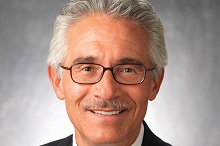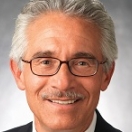

A couple of years ago, a small group of Mexican Americans began talking about whether our community’s leadership could help bring American and Mexican societies closer together, to jointly address some of the challenges that affect us both – and most of all to help strengthen civil society in Mexico.
We needed to answer some basic questions. Would well-integrated, primarily U.S.-born Mexican American leaders use their growing influence to help mobilize resources and forge the links needed to effectively help community-based projects and organizations in Mexico? Are there committed leaders and organizations across the border to partner with? Could a mechanism be fashioned to bring the two together?
I had my doubts, until a trip to the border city of Ciudad Juárez showed me what could be done and was already going on. Having grown up just across the river in El Paso, I was familiar with Juárez but had been away for decades. I saw for myself how committed citizens and robust community organizations are working tirelessly and courageously to save Juárez and its at-risk youth.
Civic and business leaders on both sides of the border were devoting time and money to strengthening civil society and opportunity in Mexican communities. I’ve learned much more about American foundations and corporations supporting critically important programs in Mexico, assisting efforts on the ground and partnering with Mexico’s private sector and civic leaders.
Our own small planning group entered into a dialogue with the U.S.-Mexico Foundation (USMF) and formed within it a Mexican American Leadership Initiative (MALI). We found strong support among Mexican American community leaders in outreach meetings across the country. Established Latino organizations such as the Hispanic Association for Corporate Responsibility, the San Antonio Hispanic Chamber of Commerce and the National Council of La Raza also let us make presentations in connection with their own annual meetings. U.S. officials from Mexico City to Washington, D.C. strongly encouraged our efforts, as did Mexican officials. The Woodrow Wilson Center helped us stage national gatherings to plan and publicly launch our initiative. Important backing has come as well from other companies, foundations and committed individuals.
I’m especially pleased that our first MALI monetary award last year went to support a summer day camp project for at-risk youth in Juárez. Now the Kellogg Foundation has stepped up with a major grant to launch a People-to-People program, mobilizing Mexican American assistance for community projects and organizations in southern Mexico, beginning in Chiapas. The U.S.-Mexico Foundation has also won growing support from the private sector in Mexico.
Those of us who have had the privilege of working together with the USMF to bring the MALI initiative into being are grateful for the opportunity, but still regard it as an experiment. The challenge is to get not only Mexican Americans but American society as a whole to embrace a sense of shared responsibility and destiny in our part of the world, our continental neighborhood. The response thus far has been more than promising.
David Ayon is the Co-Chair of MALI


